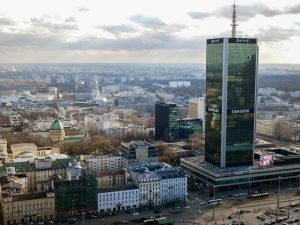These board games want you to beat climate change

In late 2023, Catan Studios announced that it would be releasing a version of its game called New Energies, focused on climate change. The new edition, out this summer, preserves the same central premise as the original. But this time, players will also construct power plants, generating energy with either fossil fuels or renewables. Fossil fuels are cheaper and allow for quicker expansion, but they lead to pollution, which can harm players’ societies and even end the game early.
Before I got my hands on the game, I spoke with one of its creators, Benjamin Teuber, who developed the game with his late father, Klaus Teuber, the mastermind behind the original Catan.
To Teuber, climate change is a more natural fit for a game than one might expect. “We believe that a good game is always around a dilemma,” he told me. The key is to simplify the problem sufficiently, a challenge that took the team dozens of iterations while developing New Energies. But he also thinks there’s a need to be at least somewhat encouraging. “While we have a severe topic, or maybe even especially because we have a severe topic, you can’t scare off the people by making them just have a shitty evening,” Teuber says.
In New Energies, the first to gain 10 points wins, regardless of how polluting that player’s individual energy supply is. But if players collectively build too many fossil-fuel plants and pollution gets too high, the game ends early, in which case whoever has done the most work to clean up their own energy supply is named the winner.
That’s what happened the first time I tested out the game. While I had been lagging in points, I ended up taking the win, because I had built more renewable power plants than my competitors.
This relatively rosy ending had me conflicted. On one hand, I was delighted, even if it felt like a consolation prize.
But I found myself fretting over the messages that New Energies will send to players. A simple game that crowns a winner may be more playable, but it doesn’t represent how complicated the climate crisis is, or how urgently we need to address it.
I’m glad climate change has a spot on my game shelf, and I hope these and other games find their audiences and get people thinking about the issues. But I’ll understand the impulse to reach for other options when game night rolls around, because I can’t help but dwell on the fact that in the real world, we won’t get to reset the pieces and try again.






